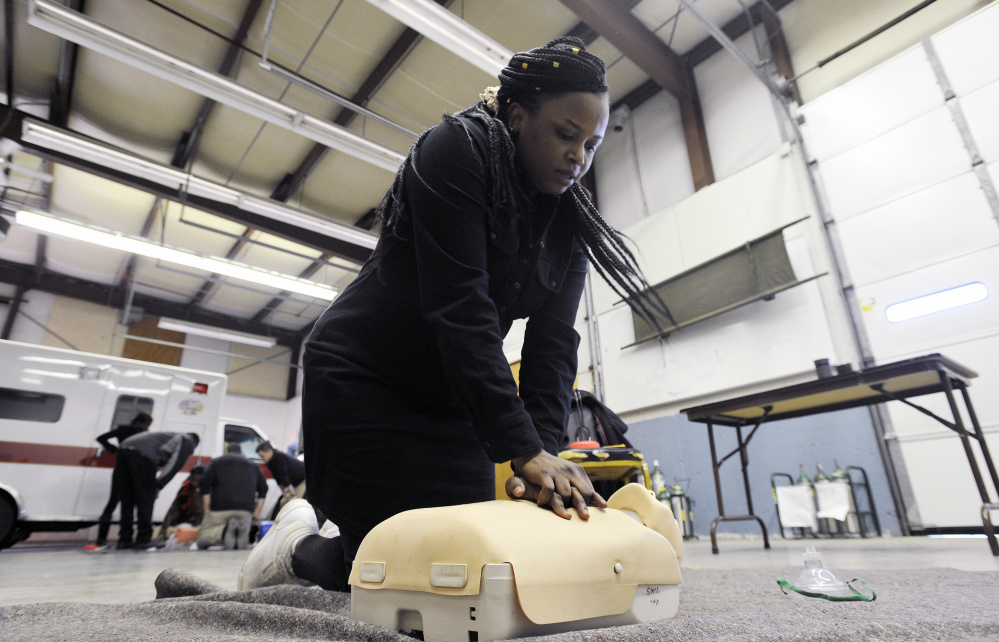The aging of Maine’s population has two effects on the delivery of emergency services, and neither one is good.
One is that there is more demand for service from people who need help from an ambulance crew. The other is a smaller population of young people to get their Emergency Medical Technician certification and answer the call.
Fortunately, Southern Maine Community College is stepping up to meet the need in a way that could serve as a model for public higher education.
The community college recently began helping new immigrants with a background in health care to earn their certification as EMTs. After completing the course, students are prepared to take state exams, and, if they are successful, to fill in-demand roles with fire departments and ambulance companies.
It’s a chance for the newcomers to provide a needed service, while establishing themselves with work that lets them take advantage of the education and experience they brought with them.
Some new immigrants to Maine were doctors or nurses in their home countries, but their credentials are not recognized here. Language and financial challenges prevent most from stepping back into those positions, but working as an EMT is an achievable way to get back into helping people in need.
The college developed the program in partnership with North East Mobile Health Services, a Scarborough-based medical transportation provider, with grants from the Maine Community College System and the John T. Gorman Foundation.
North East has committed to interviewing students who successfully complete the course. The company anticipates hiring as many as 20 full-time EMTs in the coming year.
And North East is not the only place that needs qualified EMTs. Other emergency service companies and fire departments around the state have struggled to find qualified people to fill positions.
Too often, immigrants who come to Maine are treated as if they pose a danger to the state or are a drain on resources. Gov. LePage took the symbolic step of withdrawing the state from the refugee resettlement program (even though it is a federally run program) and falsely claimed that asylum-seekers come to Maine to get “an all-expense-paid, two-year vacation.”
The success of the Southern Maine Community College program shows that in both cases, the opposite is true. An immigrant is far more likely to help longtime Mainers than to cause them harm, and people are coming to the state because they want to work, not to take it easy.
We hope that other fields looking to recruit employees will follow this example.
Send questions/comments to the editors.


